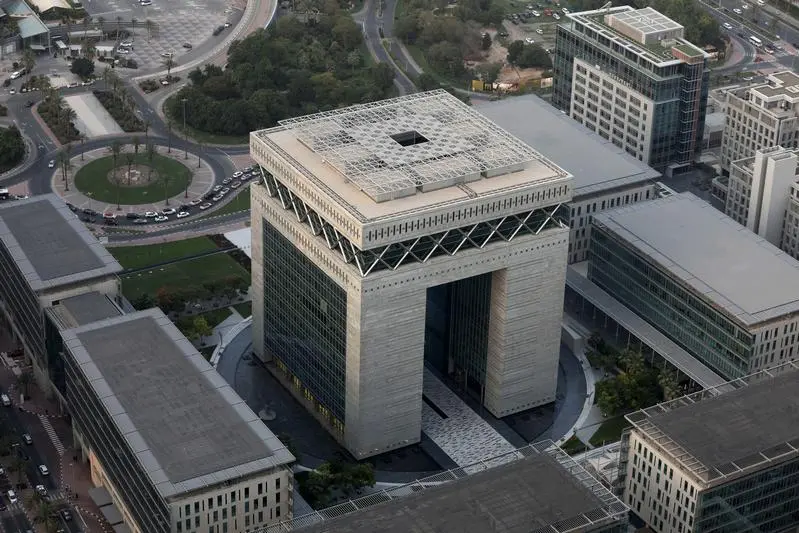PHOTO
A former staff of a Dubai bank has been fined $165,000 for involvement in anti-money laundering law (AML) breaches, the Dubai Financial Services Authority (DFSA) said.
The financial services authority said on Monday that the employee, who was a relationship manager of a private bank at the Dubai International Financial Centre (DIFC), had allegedly routed some funds from certain clients through an offshore firm in the British Virgin Islands in which he was the director and registered beneficial owner.
Funds from the same offshore firm was allegedly transferred to the private bank accounts of the ex-banker, who the DFSA identified as Ashish Bhandari.
The DFSA said the banker’s involvement with the offshore firm was not disclosed to his employer and that it decided to take action “in order to maintain the integrity and reputation of the DIFC, and to protect direct and indirect users of the financial services industry” in the zone.
However, the DIFC said in statement published on its website that it “did not make a finding that Bhandari had engaged in money laundering”.
In explaining the case, the DFSA said it decided last September 17, 2020 to take enforcement action against Bhandari "for being knowingly involved in breaches of Anti-Money Laundering (AML) legislation from 2011 to 2013 and for obstructing the DFSA in 2017 and 2018.
“The DFSA has fined Bhandari 165,000 and restricted him from performing any function in connection with the provision of financial services in or from the DIFC,” it said.
The authority had published a copy of its decision notice and the regulatory actions taken against the former bank employee.
Authorities in the country have beefed up monitoring of anti-money laundering law breaches. Last month, the UAE Central Bank asked 11 banks to pay a fine of more than 45 million dirhams for violating anti-money laundering regulations.
Bank employee
In the latest case, the staff of a DIFC-based bank had set up an offshore entity with an “introducer of his employer”.
“Mr. Bhandari arranged for the introducer’s referral fees to be paid by his employer to the [offshore firm] without disclosing his involvement [in the same firm],” the DFSA said.
Some of the employee’s clients had also instructed to transfer money from the bank to the offshore firm. “[The bank] thought the [offshore entity] was owned and controlled by the introducer. From the money transferred into the [offshore firm], large sums were then transferred to Mr. Bhandari’s personal bank accounts outside the UAE,” the authority said.
By not disclosing his outside activities and involvement in the offshore firm, the bank employee was able to maintain the fund routing arrangements and thereby retain clients.
“Mr. Bhandari’s employer failed to take proper steps to verify the identity and ownership of the [offshore firm] in accordance with its AML obligations,” the DFSA said.
“[He] was knowingly concerned in breaches of AML legislation by concealing relevant information within his knowledge from the [bank] and its compliance function.”
Bhandari’s response
In a statement sent to Zawya, Bhandari clarified that the DFSA did not make any findings that he had engaged in money laundering.
The DFSA’s ruling stemmed from his involvement in a private arrangement he had with an introducer while he was working for his former employer between 2011 and 2013. Bhandari had appealed the DFSA’s decision to the Financial Markets Tribunal and he eventually agreed to settle the matter with the DFSA for personal reasons, and in order to put the matter behind him, he said.
“The DFSA did not make any findings that I made any personal financial gain from the arrangements or that I was involved in money laundering, fraud or any related offences,” Bhandari said.
“The DFSA did not make any finding that my conduct resulted in any loss or damage to any of my former employer’s clients or that any client made a complaint about my behaviour or conduct.”
He also noted that neither his employer nor any other former employer has ever made a complaint about him or his conduct.
According to Bryan Stirewalt, chief executive of the DFSA, employees at authorised companies have the responsibility to “act with integrity and professionalism”, especially those who are dealing directly with clients and investors.
“When called to give an account of their knowledge and actions, the DFSA expects complete honesty and transparency. Anything short of that will result in significant penalties and restrictions,” said Stirewalt.
“The fine is higher than it would have been as the DFSA has previously imposed sanctions for highly similar misconduct. We expect standards to improve and we will hold to account those who fail to learn.”
(Reporting by Cleofe Maceda; editing by Seban Scaria)
Disclaimer: This article is provided for informational purposes only. The content does not provide tax, legal or investment advice or opinion regarding the suitability, value or profitability of any particular security, portfolio or investment strategy. Read our full disclaimer policy here.
© ZAWYA 2021





















